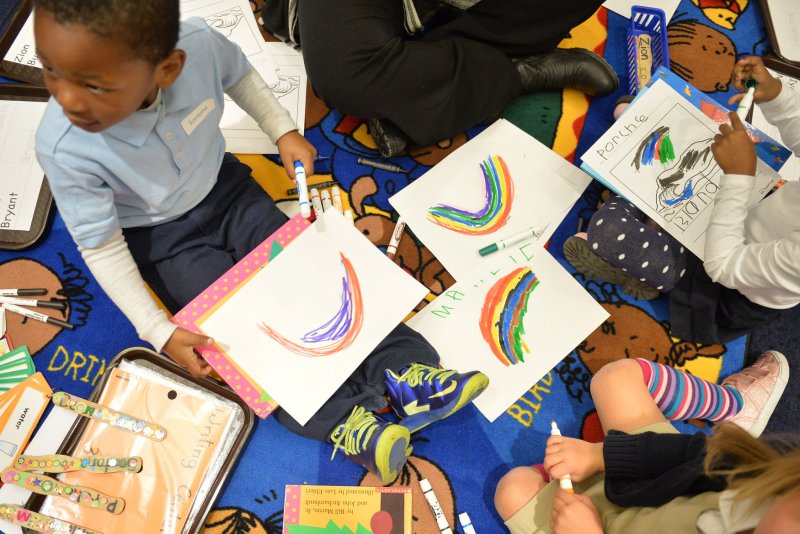Students from AppleTree Learning Public Charter School play during an event to highlight a proposal to expand early-childhood education from birth to age 5, on Capitol Hill in Washington, D.C. on November 13, 2013. UPI/Kevin Dietsch |
License Photo
OTTAWA, Sept. 22 (UPI) -- Everyone mind reads to some degree, using intuition and context clues to empathize with and interpret the thoughts, words and actions of others.
Young children do this too. And according to a new study, those that do it best tend to be better selective learners.
In an experiment conducted by researchers from Concordia University and the University of Ottawa, children with better mind-reading abilities were more likely to absorb information from trustworthy figures and disregard info offered by those who were less trustworthy.
"We already know that some preschoolers are more likely to learn from individuals with a history of making accurate claims over individuals who have been inaccurate or ignorant," senior study author Diane Poulin-Dubois, a psychology professor at Concordia and researcher with the university's Center for Research in Human Development, explained in a press release.
The new study, published in the British Journal of Developmental Psychology, suggests that mind-reading abilities are at least part of the reason children make this distinction.
As part of the study, psychologists gave 65 preschoolers "theory of mind" tests, which measured their ability to understand and anticipate their own mental state as well as the mental state and thoughts of others.
ToM test queries consist of a stated scenario, "Mr. Jones likes carrots," and a follow-up question, like: "What kind of snack Mr. Jones would want?"
Researchers then give the children a vocabulary quiz, with words and definitions administered by varying sources. Children were told that explicitly which sources had a history of inaccuracy and which ones were trustworthy. Some sources were physically strong, while others were not.
The results showed that children with higher ToM scores were likely to differentiate between information based a source's trustworthiness, rather than physical appearance.
Researchers say their study shows children with better mind-reading or intuition and empathy skills are less gullible. But they also said mind-reading ability is likely only one of many reasons why kids trust some sources of information over others.
"Even though theory of mind does predict children's tendency to selectively learn from more accurate individuals, it does not completely explain this ability," said co-author Patricia Brosseau-Liard, a psychologist at Ottawa. "There are likely many other variables influencing selective learning, including important social and cognitive attributes."















